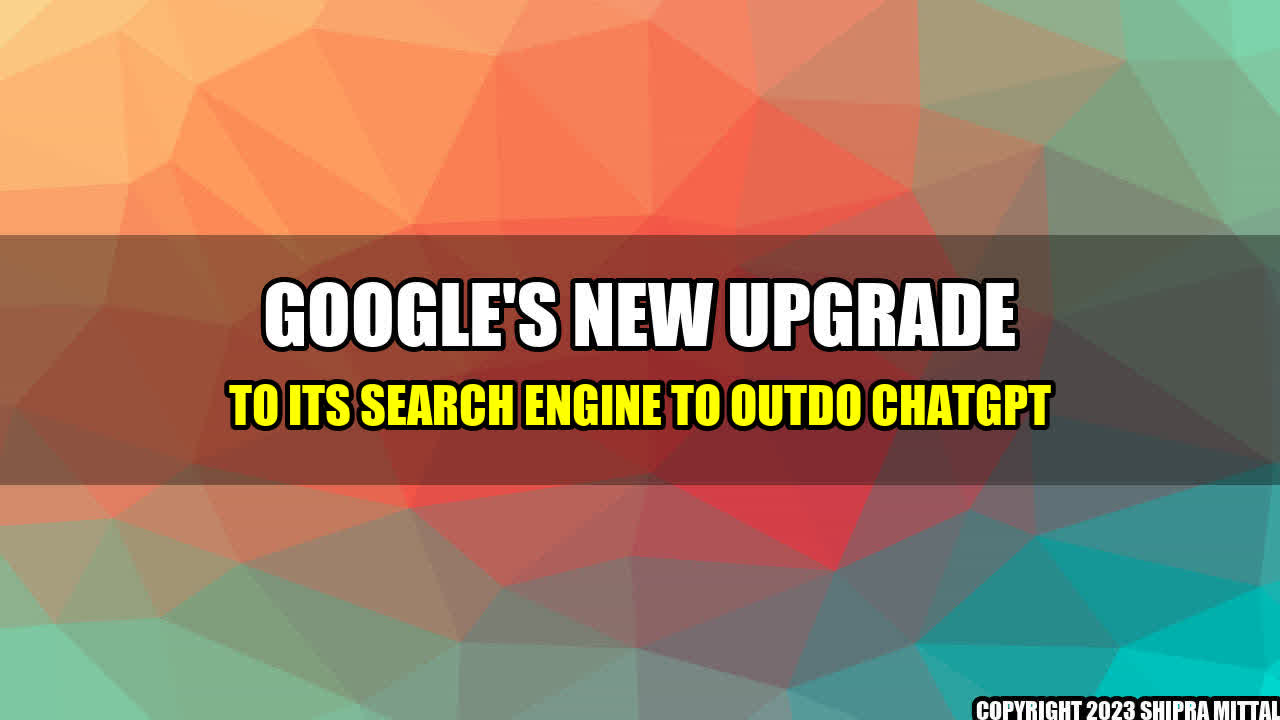Imagine that you're searching for the best places to eat in your area, and you come across a search engine that can predict your tastes and preferences. Not only that, but it can also provide you with the best recommendations based on your location, dietary restrictions, and ambience preferences. Such an engine exists today, thanks to ChatGPT, the GPT-3-based conversational AI launched by OpenAI. But, Google has announced an upgrade to its search engine that aims to compete with this cutting-edge technology.
With the latest upgrade, Google has introduced its own machine learning model, dubbed Multitask Unified Model (MUM), which can understand natural language, context, and complex queries to deliver more relevant results. For instance, if you're searching for a recipe, MUM can understand what ingredients you have on hand, how much time you have to cook, and how many portions you need to make. It can also provide you with step-by-step instructions in multiple languages and formats, such as videos or images.
Real-life examples highlight the impact of Google's upgrade. When you search for a product on Google, MUM can understand the features you want, the budget you have, and the reviews you find relevant. It can also compare similar products, highlight the pros and cons, and suggest the best deals and retailers to buy from. When you search for a travel destination, MUM can understand your itinerary, your mode of transportation, and your preferences, such as the type of accommodation, the activities you enjoy, and the local customs you want to experience. It can also provide you with estimated prices, weather forecasts, and travel tips.
As impressive as MUM may be, it still faces some challenges. One of them is that it requires massive amounts of data and computational power to train and operate. Google claims that its upgrade can handle 1,000 different tasks across 75 languages, but it remains to be seen how well it can scale to meet the demands of its users. Additionally, some experts argue that the focus on automation and efficiency may come at the expense of human touch and creativity in search results. They suggest that algorithms cannot replace the art of query interpretation and the diversity of perspectives that human analysts can offer.
Despite these challenges, the upgrade to Google's search engine represents a major step forward in the field of artificial intelligence and natural language processing. It offers a glimpse into the future of search, where users can interact with machines as if they were humans, and where machines can augment, rather than replace, human intelligence. With ChatGPT on the horizon, the competition between Google and OpenAI is heating up, and users may benefit from the race to deliver the best user experience.

Akash Mittal Tech Article
Share on Twitter Share on LinkedIn